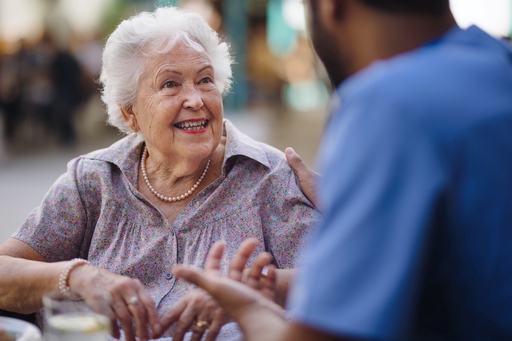
How to care for an elderly person
Caring for an elderly person, especially a parent or loved one, can be one of the most rewarding things you can ever do. However, it can also be demanding. As needs change with age or a decline in their health, it’s not always easy to know how best to help. Whether you’re providing care yourself or seeking professional support, understanding the practical steps you can take make a significant difference to your loved ones safety, comfort and overall quality of life.
At Consultus Care and Nursing, we’ve been providing compassionate, highly-skilled live-in care and live-in nursing for over 60 years, helping people across the country to live safely, independently and happily in their own homes. We believe life is better at home, granting more people the freedom to make their own choices and live life their way.
Below, we explore the key aspects of caring for the elderly at home, offering gentle guidance and practical tips to help you navigate the journey with greater confidence.
Understanding the needs of the elderly
No two people age in the same way. Some older adults remain fiercely independent well into their later life, while others begin to need support much earlier on, whether due to lack of mobility, long-term health conditions, or cognitive decline. The most important step in caring for an elderly person is understanding their individual needs, preferences and routines.
This might include:
Physical care: help with daily activities like washing, dressing, eating or taking medication
Emotional support: offering companionship, reassurance and a listening ear
Cognitive care: supporting memory, routine and decision-making if they’re living with dementia
Safety monitoring: preventing falls or accidents in and around the home
An open conversation is a good starting point. Ask your loved one what they find challenging to do on their own and what kind of help they would find acceptable.
Tips on how to care for an elderly person
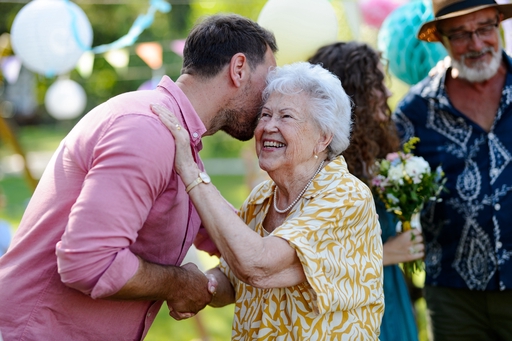
Make the home safe and accessible
Small changes in the home can have a big impact. Remove loose rugs, install grab rails in the bathroom, and ensure hallways are free from clutter. Good lighting, especially in stairwells and bathrooms can help minimise the risk of trips and falls.
You may also want to consider changes such as raised toilet seats, shower chairs, non-slip mats, or even stairlifts if needed. In the kitchen, focus should be making items easy to grip and hold, such as the kettle, knives, utensils, mugs and glasses.
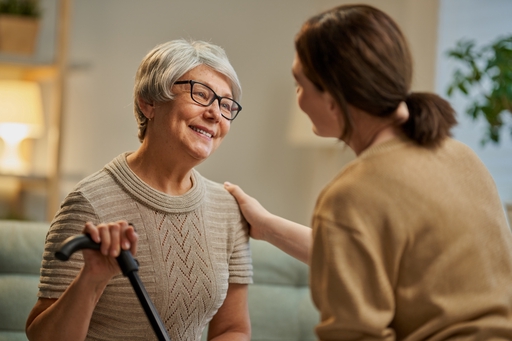
Encourage independence wherever possible
It’s natural to want to help with everything, but promoting independence is one of the most empowering forms of care. Encouraging your loved one to take an active role in their own care, whether choosing their clothes, preparing meals, or managing small tasks helps to maintain their confidence and sense of control.
Even small decisions such as what time they wake up or choosing an activity to do can make a big difference. The aim should be to support your loved one rather than take over.
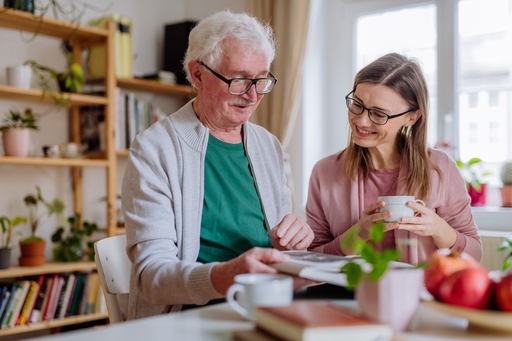
Support a healthy lifestyle
Maintaining physical health later in life is key to preserving mobility, strength, and resilience. According to NHS Inform, a nutritious, well-balanced diet helps to reduce the risk of conditions like diabetes, heart disease and osteoporosis, while staying hydrated supports cognitive function and energy levels.
Light regular movement should be encouraged to improve circulation, support joint flexibility, and boost mood. This could be a daily walk around the neighbourhood or even around the garden. Simple stretches could be suggested too.
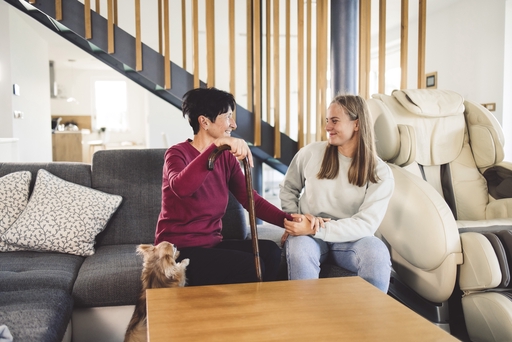
Stay on top of medication and appointments
Many older adults take several medications a day. Setting up a clear routine with the help of a pill organiser or pharmacy-prepared dosette box, calendar reminders, or carer support can help ensure nothing is missed.
Keep a clear schedule of GP, hospital, and other healthcare appointments for your loved one. Where appropriate, attend these appointments alongside them to help ask questions, take notes, and advocate for their needs. Having a written medical history and medication list to hand can also prove valuable in doctor’s appointments.
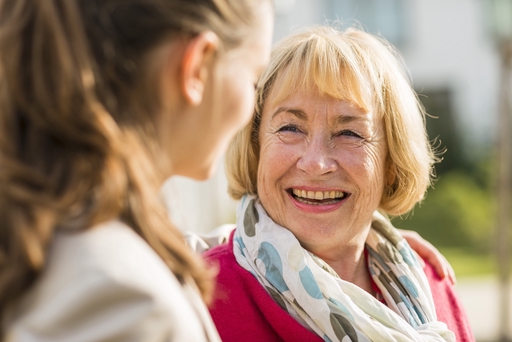
Promote mental wellbeing and emotional connection
Emotional wellbeing is just as important as physical health, yet it is often overlooked in elderly care. Loneliness is a growing concern for older adults, with Age UK reporting that more than 2 million people in the UK over 75 live alone, and more than a million older people say they go over a month without speaking with friends, family or neighbours. Maintaining regular social contact whether in person, over the phone or via video calls can lift spirits and reduce feelings of isolation.
Introducing activities that provide mental stimulation and joy, such as crosswords, games, crafts or music can be a great idea. If your loved one lives with dementia, simple, familiar routines and sensory-based activities can help maintain engagement and a sense of calm.
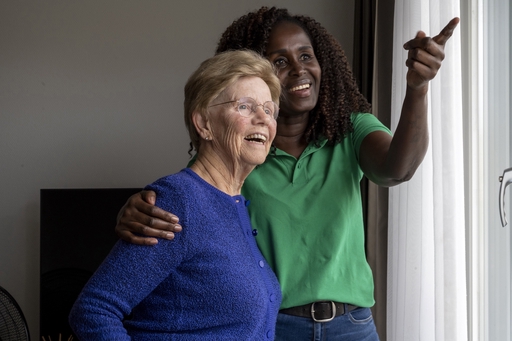
Stay informed about specialist conditions
Understanding the specific medical conditions your loved one lives with helps you respond more effectively to their care needs. Learn about symptoms, progression, and the best approaches to care. Whether your loved one is managing heart failure, arthritis, Parkinson’s, or memory loss, being well-informed allows you to anticipate changes and advocate for the right support.
There are excellent resources available from condition-specific charities such as Age UK, Alzheimer’s Society, Parkinson’s UK, and Diabetes UK. Many offer helplines, carer guides, and support groups for families navigating the same challenges.
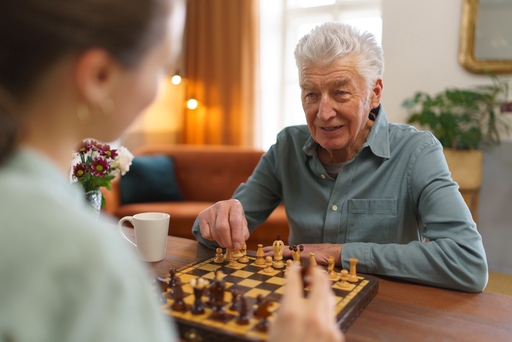
Ask for help and build a support network
Even the most devoted family carer can’t do it all alone. Share responsibilities with other family members where possible, and make use of community resources like day centres, befriending services, and local carer’s support groups.
Local authorities may offer practical help or a carer’s assessment to explore what support you might be entitled to. In-home help whether through hourly carers or live-in care can also provide much-needed respite, allowing you to recharge and focus on other areas of life

Take care of yourself, too
Lastly, it’s important to remember that your wellbeing matters just as much. Looking after an elderly relative can be difficult, particularly if you’re managing your own work or family responsibilities alongside.
Make time for your own interests, social connections, and rest. Wherever possible, consider short breaks or respite care to give yourself time to reset. You’ll return with more patience, clarity and energy to continue providing attentive loving care.
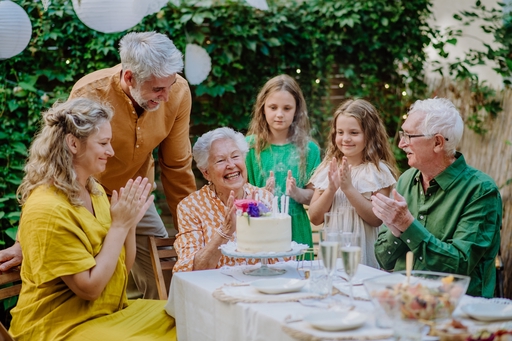
What our clients say
"Consultus Care allowed us to keep our Mum at home following a fall and a hip break. This meant that she had a really good quality of life; her friends could visit her easily. It made a huge difference to her to be in her own surroundings.
The quality of care was excellent throughout."
Alison
How Consultus Care can help
At Consultus Care, we specialise in live-in care providing round-the-clock, one-to-one support in the comfort of your own home. For elderly people who want to remain independent but need daily assistance, live-in care offers the perfect balance of freedom and reassurance.
If your loved one’s needs are more complex, we also offer live-in nursing care, with qualified nurses providing specialist clinical support at home.
Whether you’re just starting to think about care or you’re looking for respite, our Care Advisors are here to help. Call 01732 496715 or enquire online today.
Looking for care?
Please fill out the enquiry form below and we will aim to contact you within 24 hours. Looking to work for Consultus Care and Nursing? Please apply here.